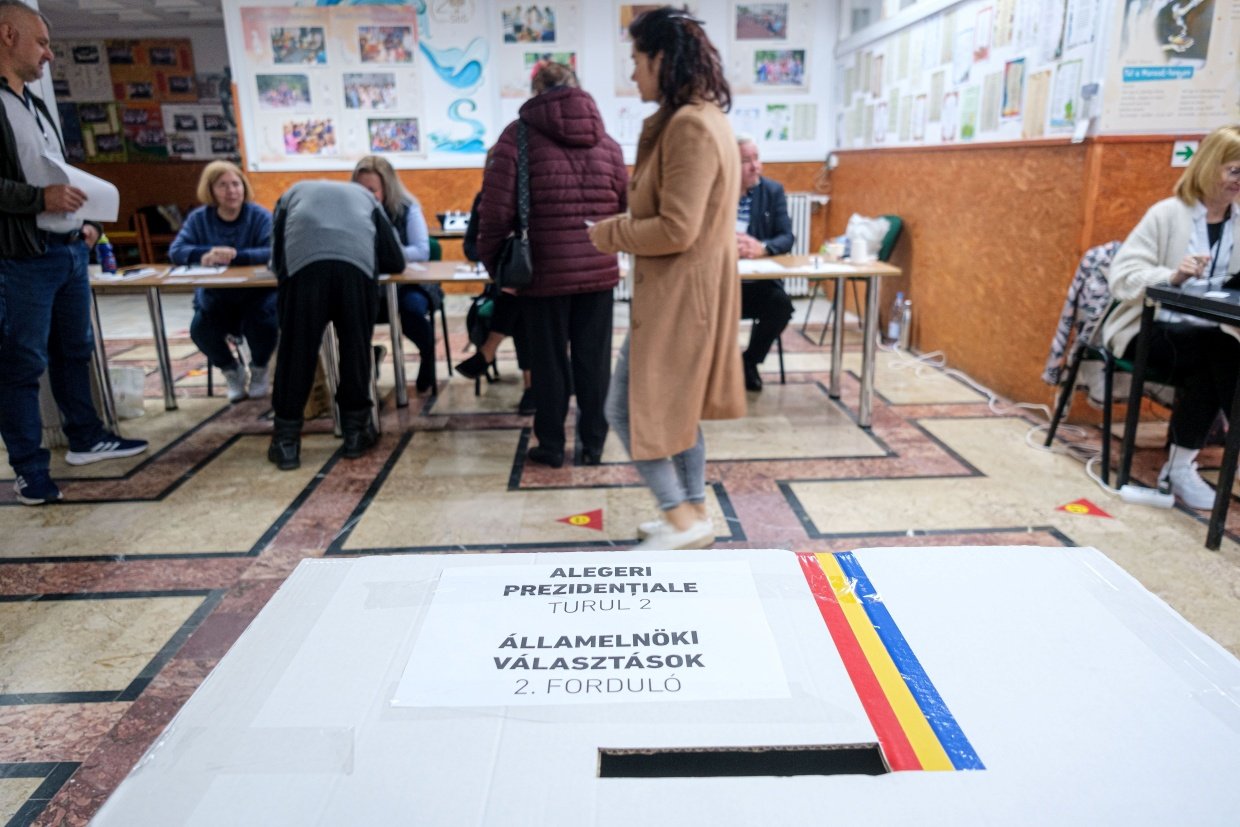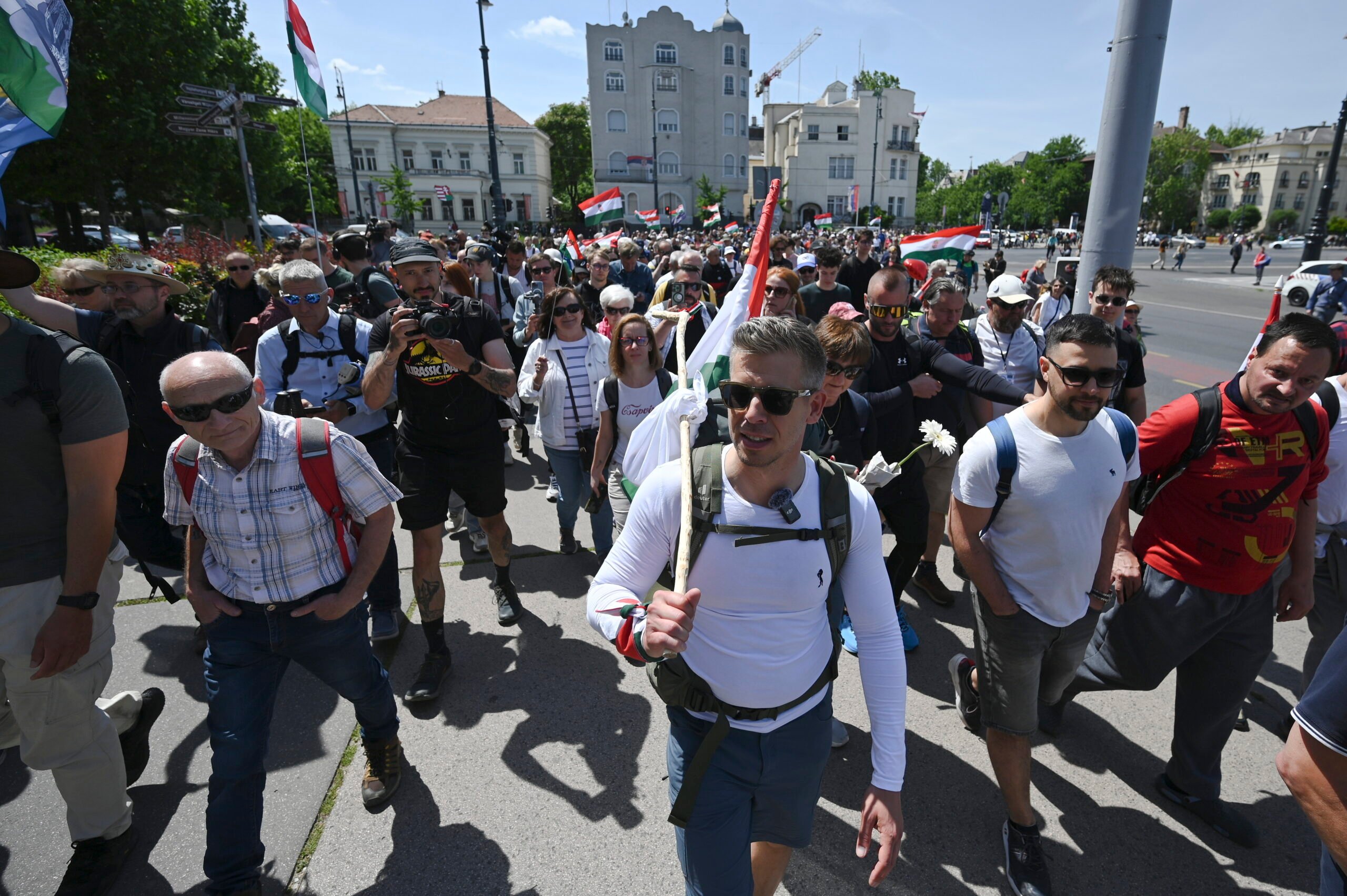
In Romania’s presidential runoff, independent candidate Nicușor Dan won with 53.60% of the vote, defeating nationalist George Simion, largely due to strong support from Transylvanian Hungarians.Continue reading

According to the Democratic Alliance of Hungarians in Romania (RMDSZ), it says a lot about Tisza Party leader Péter Magyar that he accused the alliance of “spying” for Fidesz. Krónika Online asked the RMDSZ to respond to the opposition politician’s statement.
Péter Magyar criticized the RMDSZ at the end of his walking tour in Oradea (Nagyvárad). At a press conference held there, the leader of the Tisza Party stated that the alliance was “spying” for Fidesz within the European People’s Party (EPP). The opposition politician said that the party led by Hunor Kelemen was “playing from Fidesz’s playbook.” Magyar also recalled that the RMDSZ was the only party to vote against the Tisza Party’s admission to the EPP. His views likely reflect the opinion of the EPP’s German leader, Manfred Weber, who is believed to have a crucial influence on Magyar’s political education.
Krónika Online asked Botond Csoma, spokesperson for the RMDSZ, about the case. The leader of the alliance’s parliamentary group responded by saying that the statement made by the president of the Tisza Party in Oradea primarily reflects on him.
It probably comes from him when he calls the RMDSZ a spy; it is well known that he has extensive experience in wiretapping,”
he pointed out. The politician was referring to the fact that Magyar made an audio recording in 2023, of a conversation he had with his then-wife, former Minister of Justice Judit Varga.
Csoma also commented on the events on his social media page on Sunday, writing that he does not remember any RMDSZ politician speaking inappropriately about Magyar or making any statements that were untrue. “The man in question was still a small child when the RMDSZ joined the political party family that later formed the European People’s Party.
It would be good if Péter Magyar would stop talking nonsense, stop being disrespectful, and make a little effort to get to know the Hungarians of Transylvania,”
wrote the alliance’s spokesperson, asking the president of the Tisza Party to “leave the RMDSZ out of this silly game.”
Magyar wanted the local and national leaders of the RMDSZ to be there when he arrived in Nagyvárad after his walking tour. During his tour, he asked Kelemen and his associates to join him. This did not happen, and the president of the Tisza Party attributed their absence to the alliance’s cooperation with Fidesz, Krónika Online reported.
In Nagyvárad, the Tisza Party leader said he was open to cooperation with the RMDSZ, and that this would also apply if his party came to power, as he believes the Hungarian government has a duty to cooperate with the legitimate political representation of the Hungarian community in Transylvania. He added that he would soon write an open letter to RMDSZ President Hunor Kelemen, asking him to sit down and discuss important issues affecting Hungarians in Transylvania.
The leader of the Tisza Party organized a walking tour from Budapest to Oradea which he called “A million steps for peace and national unity.” While in Hungary, he seemed to have success with the campaign, according to video reports, the Hungarians living in Romania did not welcome the politician with great enthusiasm.
Egyre forróbb a hangulat “románföldön”…
Magyar Péter kapja az ívet. pic.twitter.com/wCnE9RPJqi— Vadhajtások.hu (@VadhajtasokHu) May 24, 2025
Magyar’s pilgrimage to Romania is widely considered to be a failure not only because of the scenes where he was verbally insulted by locals from the Hungarian minority, but because he has managed to further alienate representatives of RMDSZ, who are members of the EPP group in the European parliament, just like Magyar’s Tisza Party. Although RMDSZ’s membership in Manfred Weber’s increasingly left-wing and anti-sovereigntist bloc is a point of contention among Hungarians, Magyar’s failure to communicate with the million and a half Hungarians living in countries surrounding Hungary can have serious consequences for his electoral chances. Many of these Hungarians hold double citizenship and are therefore eligible to vote in the Hungarian parliamentary elections.
Via Krónika Online, Featured photo via MTI/Balogh Zoltán